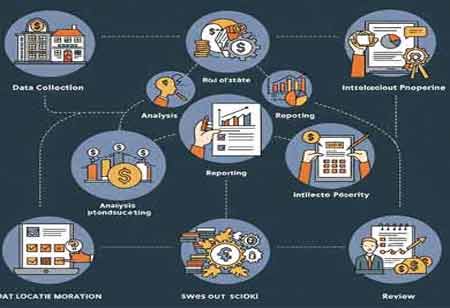CLOSE
Specials
- RegTech Europe
- Financial Risk Management APAC
- Investment Banking APAC
- Corporate Advisory APAC
- Regtech APAC
- Escrow Services
- Digital Banking Latam
- Trading Solutions APAC
- Treasury Management Europe
- CPA Firms Canada
- Financial Risk Management Europe
- Mortgage Broker
- Financial Licensing Europe
- RIA Advisory Europe
- FinTech Canada
- Financial Asset Management APAC
- Investment Banking Canada
- Payment Solution
- Lending Mangment Latam
- Payment Solution Europe
- Broker Dealer Firms Canada
- Alternative Investments Canada
- Financial Fraud
- Investment Management Latam
- Financial Health Europe
- Lending mangment
- Financial Marketing
- Proprietary Trading Europe
- Wealth Management
- FinTech
- Financial Brokerage Firm APAC
- Investment Advisory Europe
- Investment Advisory APAC
- Wealth Management MENA
- Claim Adjusting
- Claim Adjusting APAC
- Mergers and Acquisitions Consulting APAC
- Equipment Financing
- CPA Firms
- Mergers and Acquisitions Consulting Canada
- Investment Services
- Valuation Services Canada
- Wealth Management APAC
- Broker Dealer Firms
- Debt Collection Agencies
- Mergers and Acquisitions Consulting
- FinTech Europe
- Fintech Latam
- Financial Planning / Retirement
- Investment Management
- Financial Compliance
- Digital Banking Europe
- CFO Services
- Debt Collection Agencies Europe
- Wealth Management Europe
- Mergers and Acquisitions Consulting Europe
- Financial Restructuring Europe
- Financial Portfolio Management Canada
- Business Loan
- Payment and Card Latam
- Wealth Management Latam
- Mergers and Acquisitions Consulting Latam
- Tax Advisory Canada
- Trading Solutions Europe
- Alternative Investments
- Digital Insurance Europe
- Investment Services Latam
Weekly Brief
×Be first to read the latest tech news, Industry Leader's Insights, and CIO interviews of medium and large enterprises exclusively from Financial Services Review
Thank you for Subscribing to Financial Services Review Weekly Brief
Innovative Ways Insurers Can Retain Next-Gen Customers
The insurance sector is undergoing constant refinement to meet the evolving demands and expectations of the next generation of clients in today's fast-paced digital landscape.

By
Financial Services Review | Thursday, July 13, 2023
Stay ahead of the industry with exclusive feature stories on the top companies, expert insights and the latest news delivered straight to your inbox. Subscribe today.
The insurance industry is undergoing a profound transformation in the digital age. As the next generation of customers emerges, insurance companies must adapt and embrace contemporary technologies to remain relevant and retain their customer base.
FREMONT, CA: The insurance sector is undergoing constant refinement to meet the evolving demands and expectations of the next generation of clients in today's fast-paced digital landscape. Insurance companies recognise the significance of leveraging technological advancements to effectively engage and retain their customer base. With the emergence of innovative approaches, insurers can provide seamless and personalised insurance solutions, ranging from tailored digital experiences to insights derived from data analysis. By embracing technology, they can more effectively cater to the distinct requirements of next-generation clients and enhance the overall customer experience.
Personalised Customer Experience
In the present era of digital advancements, insurers are compelled to adopt technology to effectively engage and meet the expectations of the next generation of customers. To achieve this, insurers can employ various strategies.
They can provide customers with convenient digital self-service options, harness the power of data analytics and personalisation, leverage chatbots and virtual assistants, create user-friendly mobile apps for policy management, integrate Internet of Things (IoT) devices, automate claims processing, offer proactive risk management solutions, ensure a seamless omnichannel experience, and utilise personalised communication.
These measures collectively contribute to enhancing customer satisfaction and loyalty. Moreover, by embracing emerging technologies such as blockchain, artificial intelligence (AI), and machine learning (ML), insurers can bring about a transformative revolution in the insurance industry. These technologies offer benefits such as heightened security, streamlined process automation, and improved underwriting accuracy.
Seamless Digital Platforms
Insurers must adapt to the digital age to retain next-generation customers who value personalised experiences and seamless digital platforms. To achieve this, insurers can use advanced data analytics and AI algorithms to gather customer data, deliver tailored recommendations, and build stronger customer relationships. Developing intuitive mobile apps and self-service portals is crucial for engaging next-gen customers and improving customer satisfaction and loyalty. Seamless claim processing can be simplified by leveraging automation and digitisation, streamlining documentation requirements, and reducing friction in the claims process.
Incorporating digital ecosystems, AI-powered virtual assistants, gamification and incentives, and social media engagement can further enhance customer satisfaction, loyalty, and retention. Incorporating rewards, achievements, and interactive tools can make the insurance experience more engaging and enjoyable for next-gen customers. Social media channels can also provide targeted advertising and content creation opportunities to reach and retain customers effectively.
Embracing Telematics and IoT
Insurers have the opportunity to maximise their appeal to the next generation of customers by harnessing the power of telematics and IoT. By utilising these technologies, insurers can deliver personalised services, refine risk assessment and pricing models, and cultivate stronger customer engagement. A prime example of this is the implementation of usage-based insurance (UBI) policies, which gather data from vehicle sensors to determine premiums based on individual risk profiles. In addition, integrating IoT-enabled devices into home insurance policies, referred to as connected home Insurance, provides personalised recommendations and support by analysing data from connected cars, homes, wearables, and social media, as well as incentives for health and wellness programs. Additionally, by automating data collection and analysis, insurers can streamline the claims process, resulting in improved customer experiences and fostering greater loyalty.
Advanced Analytics and Predictive Modeling
Advanced analytics and predictive modelling play a crucial role in the insurance industry for effectively retaining next-generation customers. By harnessing data-driven insights and adopting innovative approaches, insurers can deeply understand their customers' needs, personalise their offerings, and deliver a seamless customer experience.
These techniques encompass a wide range of strategies, including customer segmentation and personalisation, predictive customer lifetime value (CLV) analysis, usage-based insurance (UBI), proactive risk management, automated underwriting and claims processing, predictive customer churn analysis, enhanced customer experience, and digital engagement and self-service options. By examining historical data and studying customer behaviour patterns, insurers can create predictive models that accurately estimate the potential value a customer will bring throughout their lifetime. This enables insurers to allocate resources efficiently, provide targeted incentives, and offer personalised services to maximise customer satisfaction.
Emphasising Transparency and Trust
To retain next-generation customers, insurers must prioritise transparency and trust in innovative ways. Clear and simple communication, digital engagement, personalised and customisable policies, transparent pricing models, proactive risk management, user feedback, ethical data handling, and social responsibility and sustainability are essential strategies. Insurers should avoid complex jargon, provide user-friendly platforms, and offer digital tools like live chat support and chatbots. Personalised and customisable policies can be offered through data analytics and AI, while transparent pricing models ensure accurate quotes based on individual circumstances. Proactive risk management and user feedback can help differentiate insurers and demonstrate their commitment to customer well-being.
Incorporating user feedback and implementing robust data protection measures, such as secure storage and encryption, can also foster trust and confidence in insurers' commitment to protecting personal information. Finally, demonstrating social responsibility and sustainability can attract and retain customers prioritising these values.
To retain next-gen customers, insurance companies must adapt and embrace technology-driven strategies. By providing personalised experiences, seamless digital platforms, and leveraging telematics, IoT, advanced analytics, and transparency, insurers can engage and retain the next generation of policyholders. Embracing these innovative approaches not only enhances the customer experience but also drives operational efficiencies and establishes a competitive edge in the evolving insurance landscape. As the industry continues to evolve, insurers must be proactive in their technological investments to stay connected and relevant to their next-gen customers.

Copyright © 2025 Financial Services Review. All rights reserved





